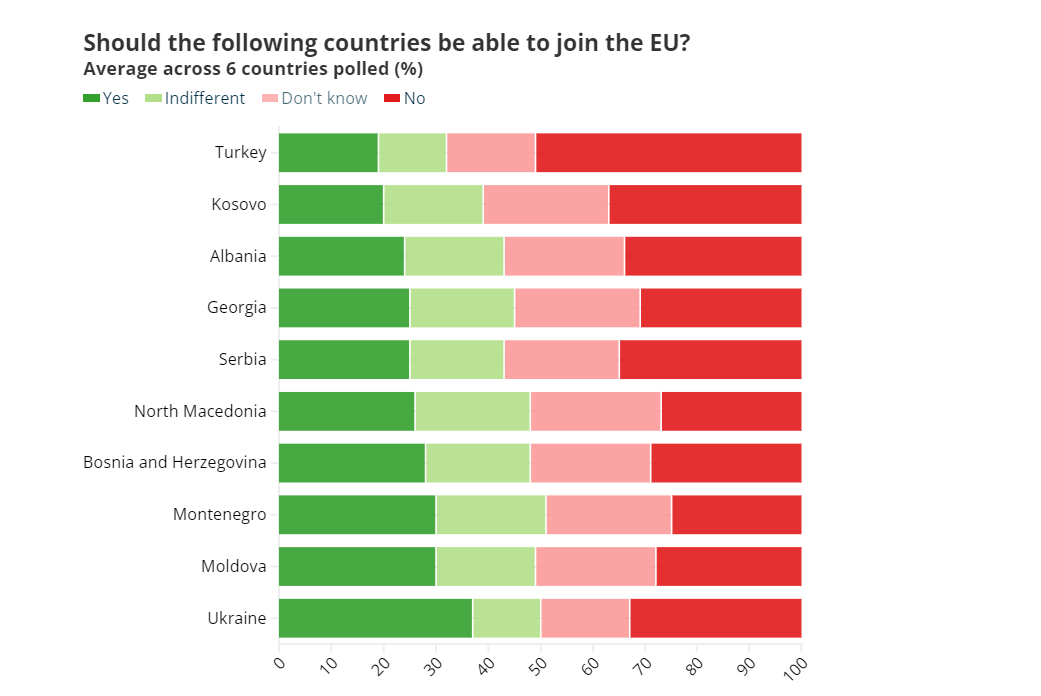While Europeans appeared relatively amenable to the idea of Ukraine’s accession, the sentiment notably waned when considering the prospects of Turkey.
According to a survey of six EU countries released Tuesday by the European Council on Foreign Relations (ECFR), there is no clear majority support for any of the current candidate countries joining the bloc soon, despite respondents being open-minded to the accession of Ukraine, Moldova, and Montenegro.
The findings come as EU and Western Balkan leaders prepare to discuss enlargement in a summit in Brussels on Wednesday, and ahead of crunch decisions on advancing Ukraine, Moldova and Georgia’s accession bids later this week.
Across the countries surveyed by ECFR, 37% of respondents back Ukraine joining the EU, while 33% oppose.

Respondents were also open-minded to the membership of Moldova, which has so far been in lockstep with Kyiv in its bid, and Montenegro, considered the most advanced of the Western Balkan countries in aligning with the EU’s economic and foreign policies.
But a majority of respondents (51%) oppose Turkey joining the EU and opinion is divided on many Western Balkan countries – more than one in three oppose EU accession for Kosovo (37%), Serbia (35%) and Albania (35%).
The European Commission recommended opening formal membership talks with Ukraine and Moldova last month, pending the approval of EU leaders at a summit that kicks off on Thursday.
But Hungarian premier Viktor Orbán has expressed his steadfast opposition, threatening to veto the opening of talks with Ukraine and derailing EU plans to give a much-needed boost to Kyiv’s ambitions of becoming an EU member at a time when Western support to Ukraine is faltering.
Turkey’s bid to join the EU has remained in the deep freeze over Turkish President Recep Tayyip Erdogan’s increasingly authoritarian rule. Strengthened by a new electoral mandate in May, Erdogan is continuing his crackdown on dissent and tightening his grip on power.
However, the Turkish leader is expected to bring with him a list of demands when he attends the EU summit, including visa liberalisation and calls for a new trade deal. European leaders may be looking for compromise rather than confrontation, given that Erdogan is set to remain in power for the foreseeable future.
“Especially after the elections in Turkey, the EU is looking for new ways of having a more constructive and less acrimonious relationship with Turkey,” predicts Berktay Mandirci, a senior analyst with the International Crisis Group.
Various press sources
Follow our English language YouTube videos @ REAL TURKEY: https://www.youtube.com/channel/UCKpFJB4GFiNkhmpVZQ_d9Rg
And content at Twitter: @AtillaEng
Facebook: Real Turkey Channel: https://www.facebook.com/realturkeychannel/